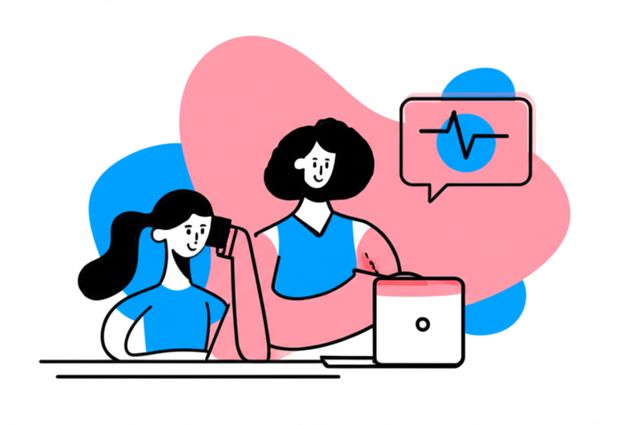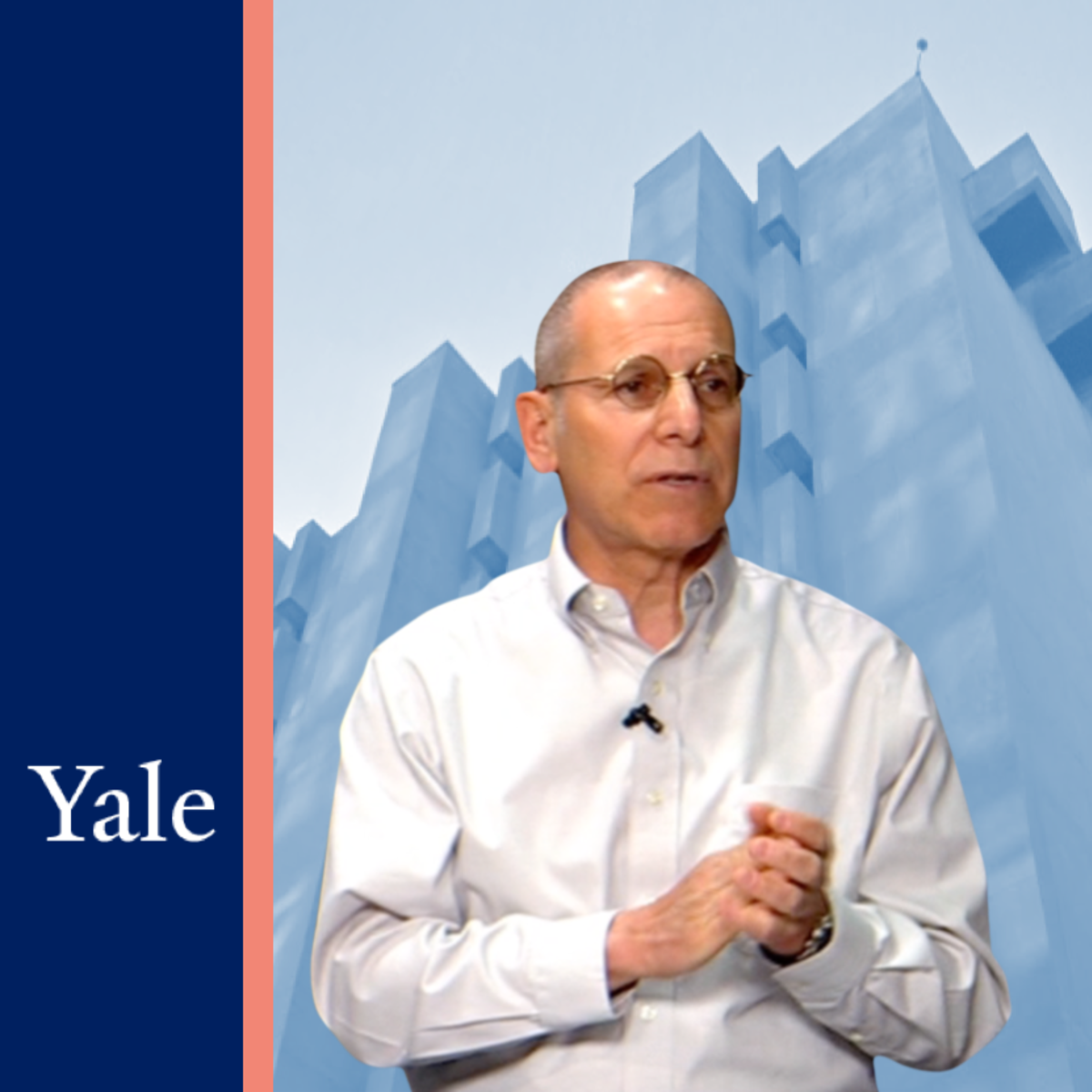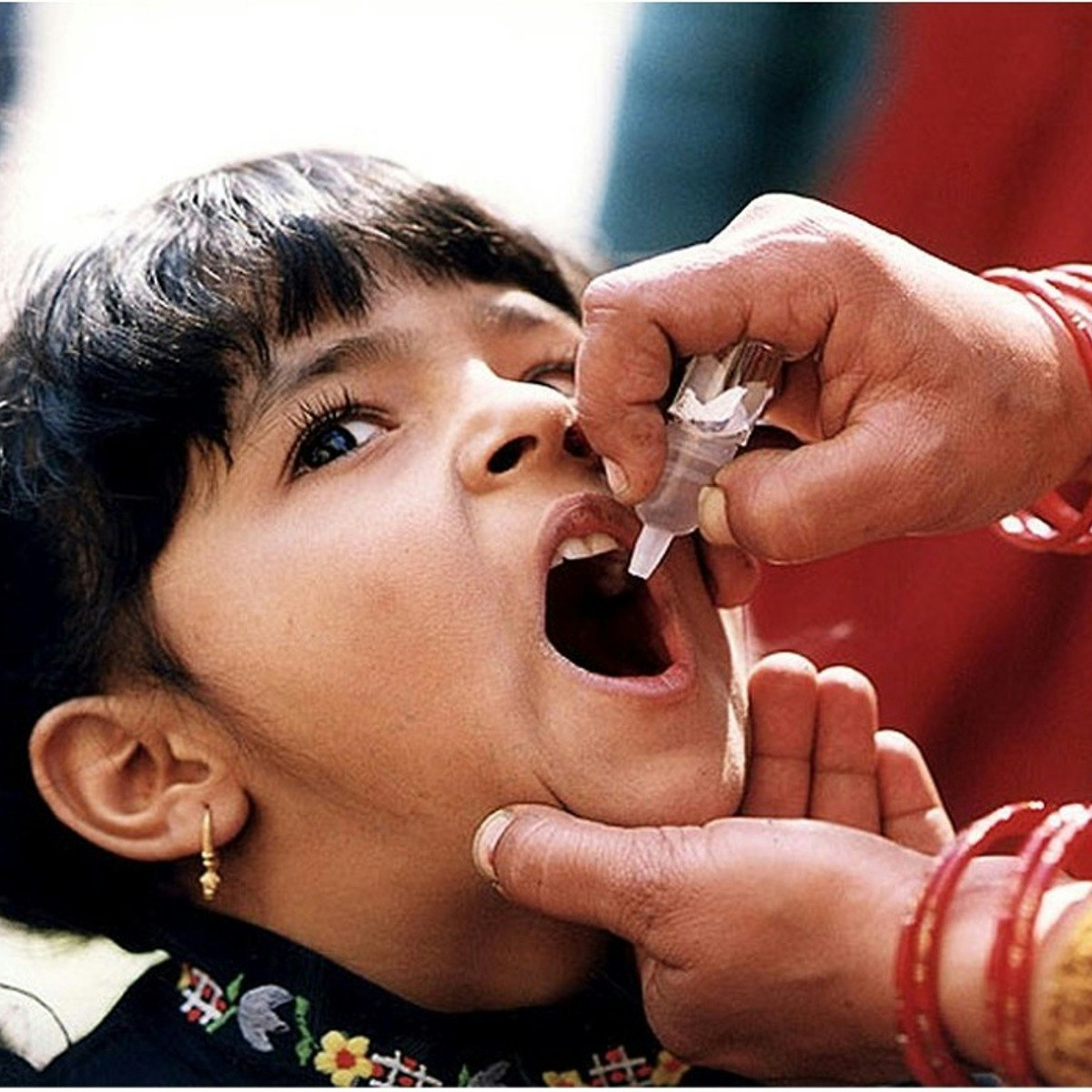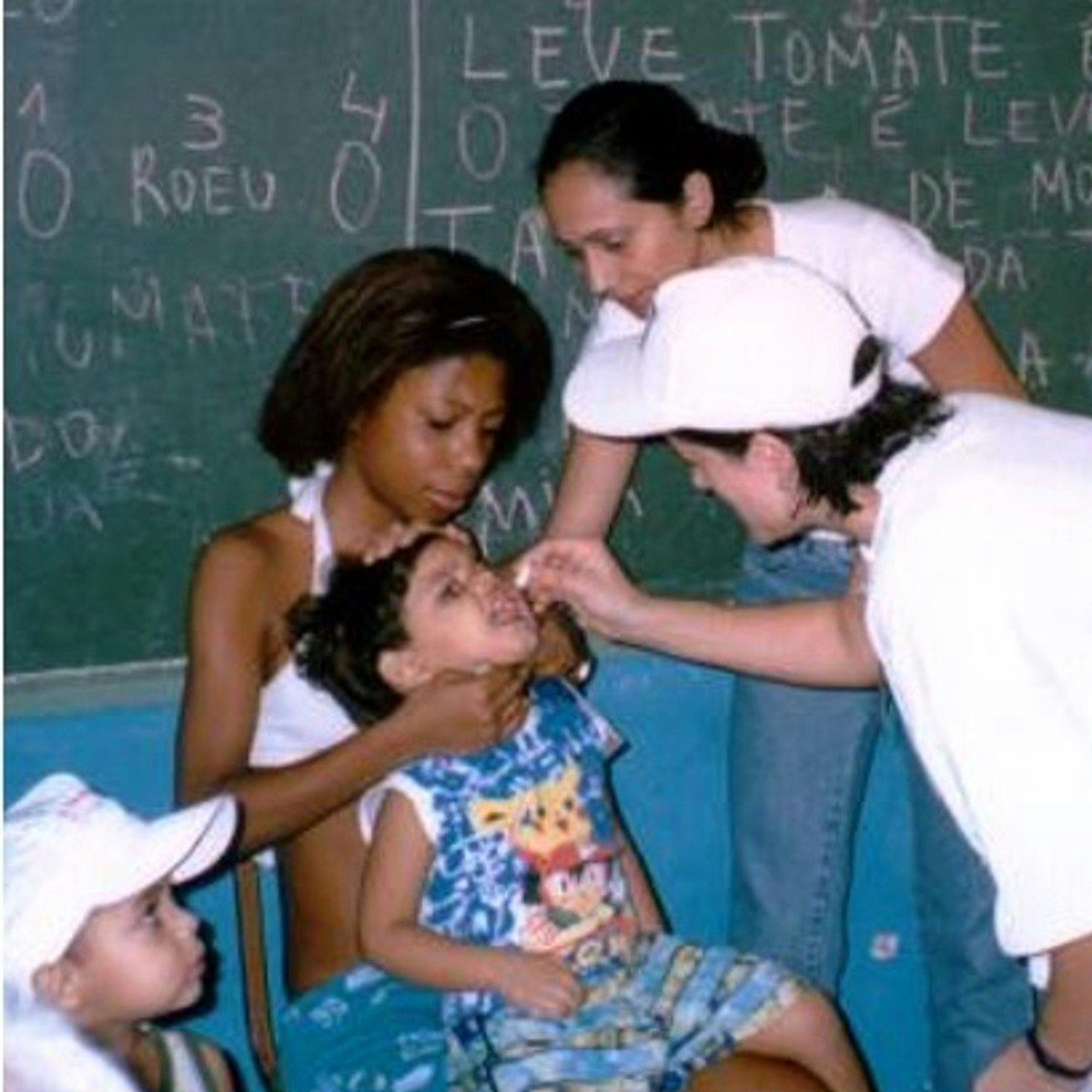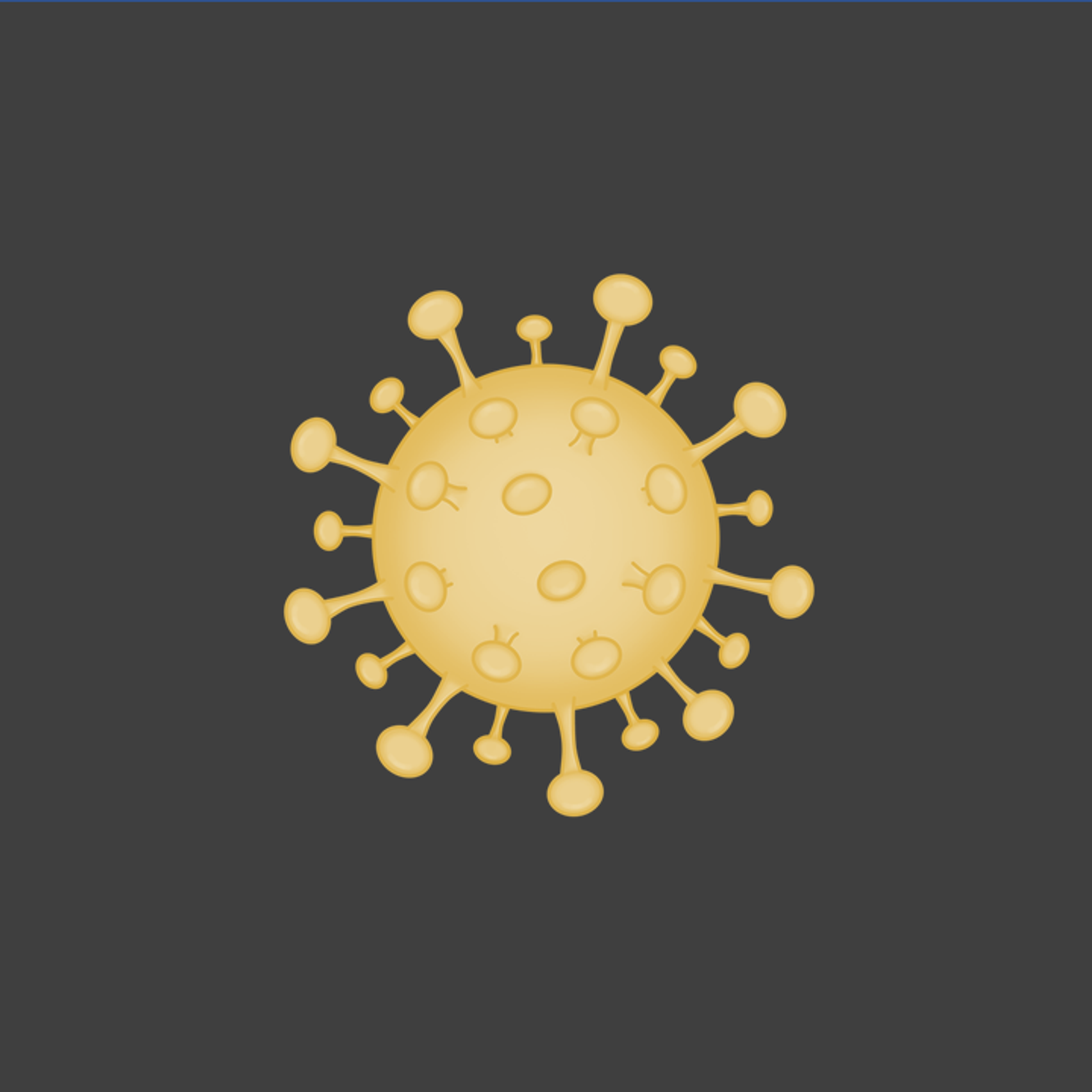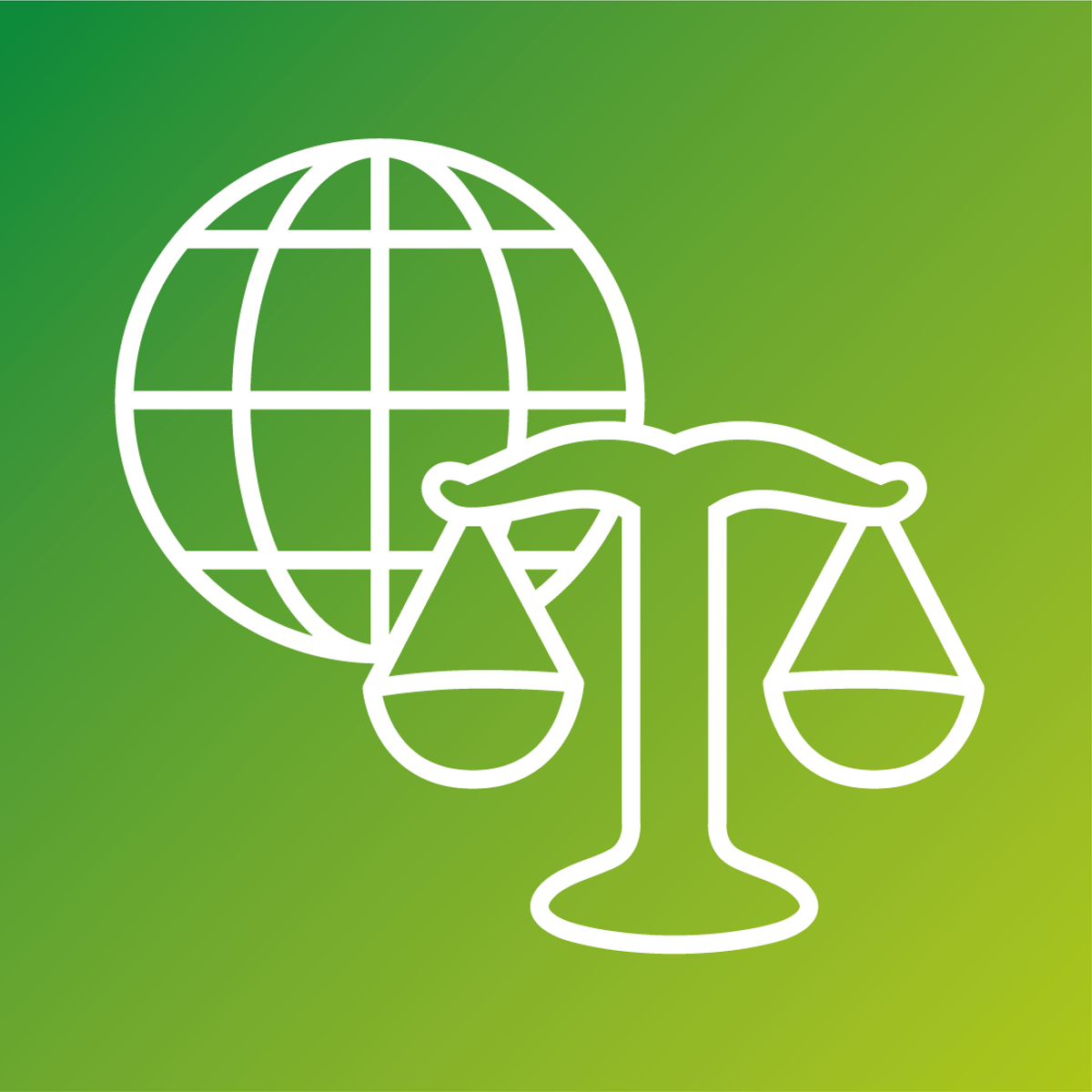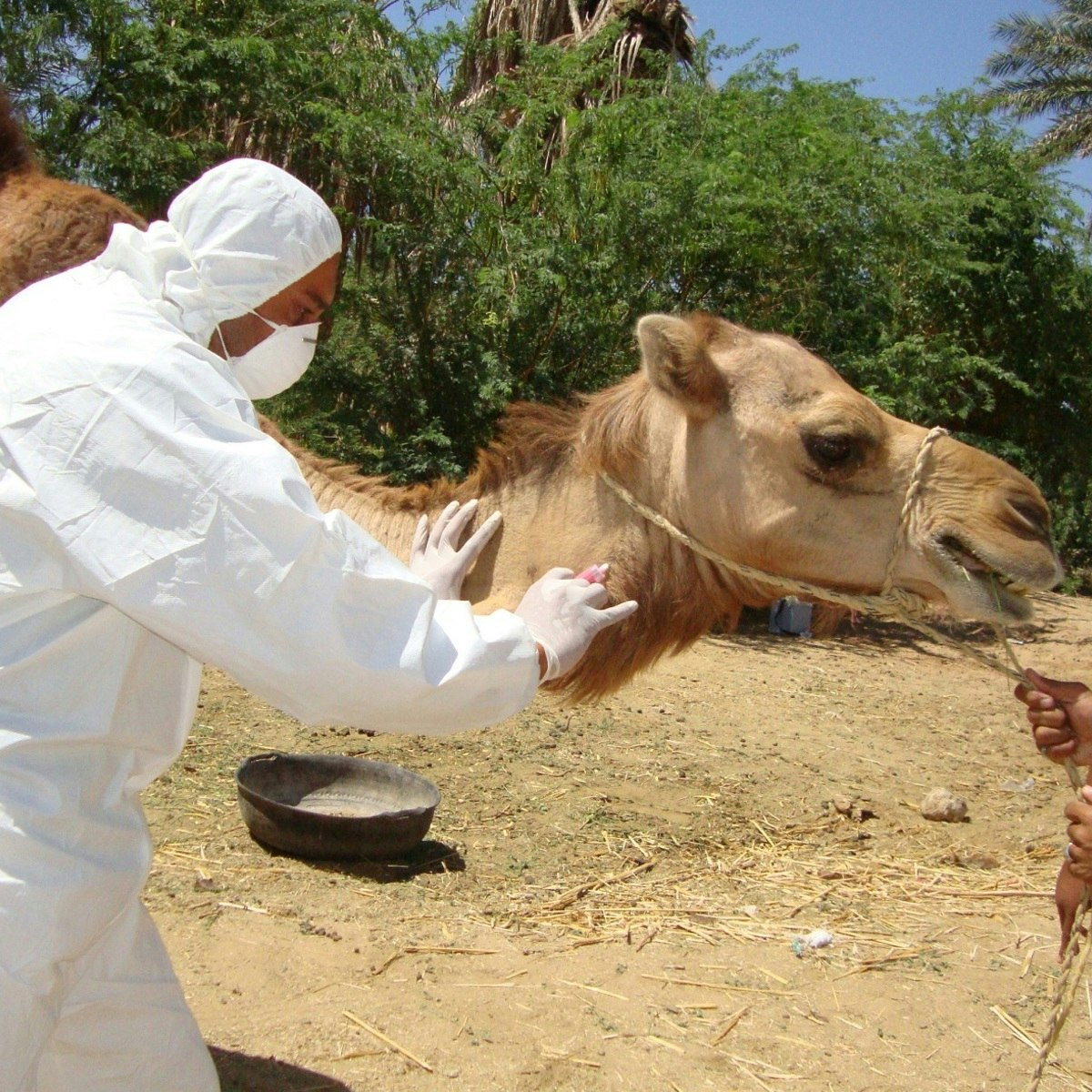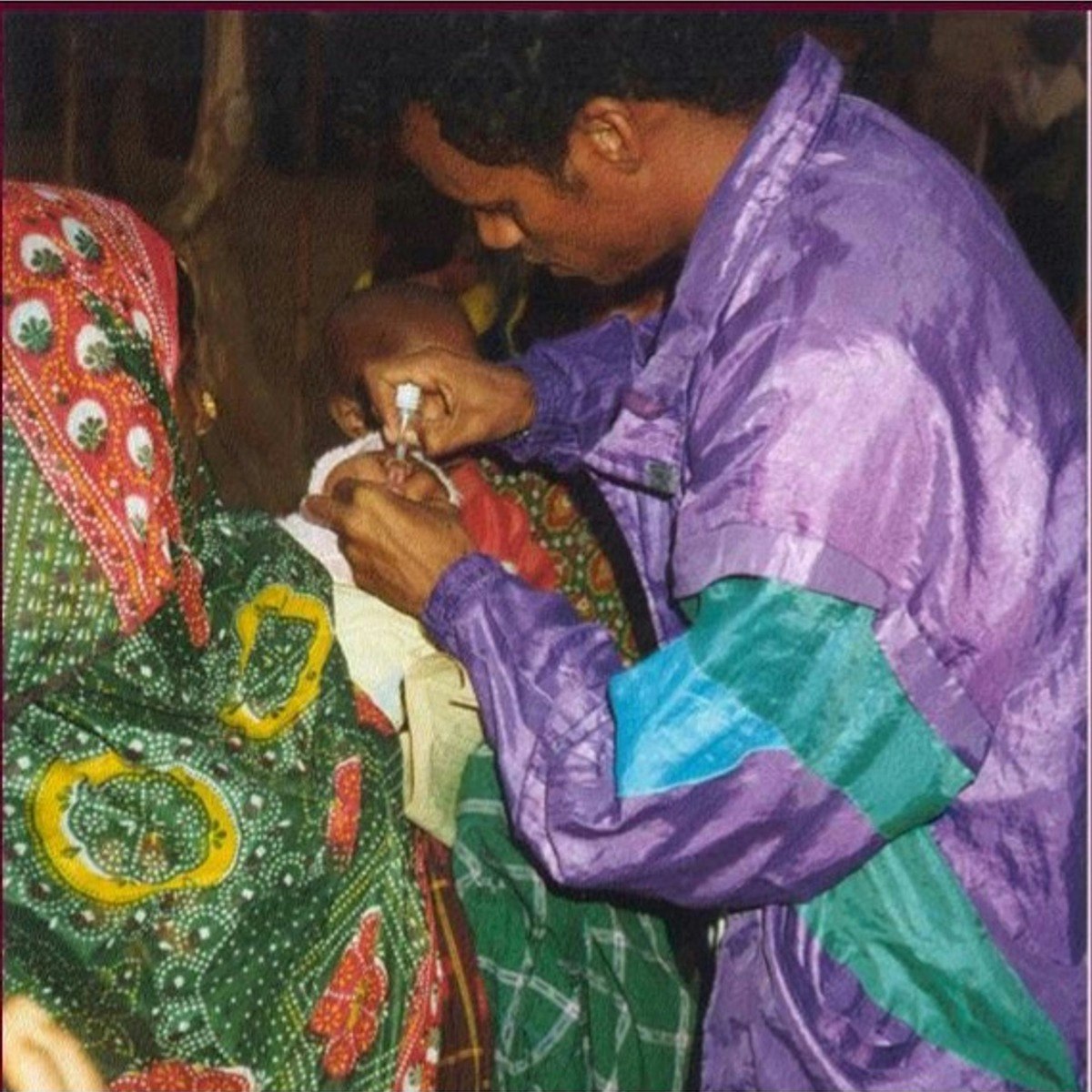Health Communication Specialist
A Comprehensive Guide to a Career as a Health Communication Specialist
A Health Communication Specialist plays a crucial role in public health by developing and disseminating messages aimed at improving health outcomes and promoting well-being. These professionals work to bridge the gap between complex medical information and the general public, ensuring that vital health knowledge is accessible, understandable, and actionable for diverse audiences. The field involves crafting and delivering information about medical treatments, healthy lifestyle choices, disease prevention, and public health policies.
Working as a Health Communication Specialist can be particularly engaging due to the dynamic nature of the work. Professionals in this field often find themselves at the forefront of public health initiatives, creating campaigns that can significantly impact community health. The role allows for creativity in designing materials, from social media campaigns and video content to printed brochures and public service announcements. Furthermore, the collaborative aspect of the job, working with epidemiologists, scientists, policymakers, and community leaders, provides a rich and intellectually stimulating environment.
Introduction to Health Communication Specialists
This section will explore the foundational aspects of the Health Communication Specialist role, providing clarity for those new to this important and evolving field.
Defining the Role and Its Core Mission
A Health Communication Specialist is essentially a translator and a messenger, tasked with conveying health-related information in a way that informs and influences individual and community decisions regarding health. Their primary objective is to improve health literacy and encourage behaviors that lead to better health outcomes. This involves understanding the target audience, identifying key health issues, and developing communication strategies that resonate and motivate action.
These specialists work to ensure public understanding of critical health matters and help align agency or organizational messaging around complex scientific topics. They might develop materials to promote health services, explain disease prevention methods, or inform the public during health crises. The ultimate goal is to empower individuals and communities to make sound health decisions and effectively manage their health behaviors.
The role often blends aspects of public relations, marketing, and education, but with a specific focus on health and well-being. Instead of selling a product, a Health Communication Specialist "sells" health awareness and encourages the adoption of healthy practices. They analyze public health risks, design educational materials, and utilize various media to influence public perception and policy related to health.
The Evolution of Health Communication
The field of health communication, while having roots in earlier public health education efforts, began to formalize as a distinct discipline in the latter half of the 20th century. Early work in the 1960s and 1970s started to explore doctor-patient communication and the effectiveness of public health campaigns. The International Communication Association (ICA) officially recognized health communication as a division in 1975, a significant milestone in its development.
Initially, research focused on interpersonal interactions in healthcare settings and the use of mass media for public health messaging. Over time, the field has grown and diversified, incorporating insights from communication studies, public health, psychology, sociology, and marketing. The establishment of specialized academic journals, such as Health Communication in 1989 and the Journal of Health Communication in 1996, further solidified its academic standing.
Today, health communication is a multifaceted field that addresses a wide range of issues, from patient-provider communication and health literacy to social marketing campaigns and the use of digital technologies in health promotion. The rise of global health issues, the increasing use of new technologies, and the ongoing need to address preventable behavioral and social factors contributing to mortality continue to drive the evolution and importance of this field.
To gain a foundational understanding of the principles that underpin this field, exploring introductory courses can be highly beneficial. These courses often cover the history, theories, and basic applications of health communication, providing a solid base for further learning.
Distinguishing Health Communication from Related Fields
While Health Communication Specialists share some common ground with public relations professionals, health educators, and general healthcare workers, their focus and approach are distinct. Unlike general public relations, which may cover a broad range of organizational communication, health communication is specifically centered on health and medical topics, aiming to improve public health outcomes. While a PR specialist for a hospital might handle general media inquiries, a Health Communication Specialist would focus on developing campaigns about specific health issues like vaccination or disease prevention.
Health Educators also aim to improve health knowledge and behaviors, but their role often involves more direct teaching and program implementation within communities, schools, or healthcare settings. Health Communication Specialists, on the other hand, typically focus more on the strategic design and dissemination of messages through various media channels to reach wider audiences, though there can be overlap. They are often the "storytellers" who craft the messages that health educators might then help deliver or reinforce at a local level.
Compared to clinical healthcare roles that provide direct patient care, Health Communication Specialists work on the informational and persuasive aspects of health. They are not involved in diagnosing or treating diseases but rather in ensuring that information about those diseases, treatments, and preventive measures is clearly understood and acted upon by the public. Their work supports clinical efforts by fostering an informed patient population and promoting healthy environments.
Understanding these distinctions is key for anyone considering a career in this area, as it helps clarify the unique contributions Health Communication Specialists make. For those interested in the broader field of public health of which health communication is a part, exploring foundational public health courses is a good starting point.
These courses offer a broad overview of public health principles, which can provide valuable context for the more specialized work of a Health Communication Specialist.
Further reading can also help delineate these roles and provide a richer understanding of the communication aspects within public health.
This book provides a comprehensive overview of public health communication, including its various facets and applications.
Key Responsibilities and Daily Tasks
The day-to-day work of a Health Communication Specialist is diverse and impactful, involving a blend of strategic thinking, creativity, and collaboration. Their responsibilities revolve around making health information accessible and actionable to various audiences.
Designing and Implementing Public Health Campaigns
A core responsibility for Health Communication Specialists is the conceptualization, design, and execution of public health campaigns. These campaigns aim to raise awareness about specific health issues, promote healthy behaviors, or encourage the utilization of health services. This process begins with analyzing public health data and identifying areas where communication can make a difference.
Specialists then develop targeted messages and select appropriate channels to reach their intended audience, which could range from specific demographic groups to the general public. This might involve creating content for social media, developing print materials like brochures and posters, producing radio or television public service announcements, or organizing community events. Examples of such campaigns include initiatives to reduce smoking rates, promote STD testing, encourage vaccinations, or raise awareness about mental health.
Throughout the campaign, specialists monitor its progress and evaluate its effectiveness in achieving the desired outcomes. This data-driven approach allows for adjustments and improvements in future communication efforts. They often work with graphic designers, web developers, and other creative professionals to bring these campaigns to life.
Online courses can equip individuals with the skills to design, implement, and evaluate digital health campaigns, which are increasingly critical in reaching broad audiences.
Understanding how to strategically build and execute these campaigns is a vital skill.
Translating Complex Medical Information
A crucial skill for Health Communication Specialists is the ability to take complex medical and scientific information and translate it into language that is easily understood by diverse audiences. This involves avoiding medical jargon and technical terms whenever possible, or explaining them clearly when their use is unavoidable. The goal is to ensure that individuals, regardless of their health literacy level, can comprehend important health messages.
This translation is vital for patient education materials, public health advisories, website content, and news releases. For example, instead of using a clinical term like "myocardial infarction," a specialist might use "heart attack" and explain what happens during this event in simple terms. Similarly, they might break down statistical data about disease risk into more relatable concepts. The Centers for Disease Control and Prevention (CDC) provides resources like "Everyday Words for Public Health Communication" to aid in this process.
Effective translation requires not only strong writing and verbal communication skills but also an empathetic understanding of the audience's perspective, potential anxieties, and cultural background. Visual aids, such as infographics or simple diagrams, can also be powerful tools in making complex information more digestible. This skill is paramount in empowering people to make informed decisions about their health.
Developing the ability to communicate complex topics simply is a cornerstone of this profession. Courses focusing on communication skills within healthcare can be very beneficial.
Understanding the principles of health literacy is fundamental to this aspect of the role.
These books offer in-depth insights into health literacy and effective communication in healthcare settings.
Crisis Communication in Health Emergencies
During public health emergencies, such as disease outbreaks, natural disasters, or pandemics, Health Communication Specialists play a critical role in disseminating timely, accurate, and actionable information to the public. Their efforts are essential for mitigating risks, guiding protective actions, and minimizing negative mental health impacts. This involves issuing press releases, managing media inquiries, and utilizing all available communication channels to reach affected populations.
Effective crisis communication requires the ability to convey urgency without causing undue panic, to address rumors and misinformation swiftly, and to provide clear instructions on what people should do to protect themselves and their families. Specialists work closely with public health officials and emergency management teams to ensure that messages are consistent and based on the latest scientific evidence. The World Health Organization (WHO) emphasizes risk communication as a core capacity for preventing the global spread of disease.
The COVID-19 pandemic highlighted the critical importance of skilled health communicators who could explain evolving scientific understanding, promote preventive measures like social distancing and mask-wearing, and address vaccine hesitancy. This often involves working under pressure and adapting messages as new information becomes available. Trust in public health authorities is crucial during emergencies, and effective communication is key to building and maintaining that trust.
Specialized knowledge in communicating during health crises is invaluable.
Understanding how to handle information during such events is critical, as explored in books that recount past pandemics and public health responses.
Collaboration with Epidemiologists, Researchers, and Policymakers
Health Communication Specialists do not work in isolation; collaboration is a key aspect of their role. They frequently partner with epidemiologists, scientists, and other public health experts to ensure the accuracy and relevance of the information they disseminate. This involves understanding research findings and translating them into messages that are meaningful for the public and for specific stakeholder groups.
Collaboration with policymakers is also crucial. Health Communication Specialists help to inform policymakers about public health issues and the potential impact of different policy decisions. They may develop briefing materials, presentations, or public awareness campaigns designed to support health-related policy initiatives. The goal is to ensure that health considerations are integrated into policy-making processes across various sectors.
Furthermore, these specialists engage with community leaders, advocacy groups, and media representatives to build alliances and extend the reach of health messages. This collaborative approach helps to ensure that communication efforts are culturally appropriate, address community concerns, and leverage existing networks for dissemination. Building strong working relationships across disciplines and sectors is essential for effective public health communication.
Understanding how to work with data and those who generate it is an important skill. Courses in data use for public health can provide relevant insights.
Interdisciplinary collaboration is often explored in public health programs.
This requires an understanding of how different fields approach health issues.
Core Competencies and Skills
To excel as a Health Communication Specialist, a combination of specific knowledge and practical skills is essential. These competencies enable professionals to effectively design, implement, and evaluate health communication strategies across diverse contexts.
Advocating for Health Literacy
A fundamental competency for Health Communication Specialists is the ability to advocate for and promote health literacy. Health literacy refers to the degree to which individuals have the capacity to obtain, process, and understand basic health information and services needed to make appropriate health decisions. Specialists champion the cause of clear communication by ensuring materials are easy to understand, accessible, and actionable for people with varying levels of literacy and health knowledge.
This involves using plain language, avoiding jargon, and testing materials with target audiences to ensure clarity. Advocacy also extends to working within healthcare systems and public health organizations to embed health literacy principles into all forms of communication, from patient brochures to website content and public service announcements. They may also be involved in training healthcare providers on how to communicate more effectively with patients to improve understanding and adherence to treatment plans.
By championing health literacy, specialists help to reduce health disparities, as lower health literacy is often linked to poorer health outcomes, especially among vulnerable populations. Empowering individuals with understandable health information is a key step towards enabling them to take active roles in managing their health. This directly supports the overall goal of improving population health.
Understanding the nuances of health literacy is critical for any aspiring Health Communication Specialist. Specific courses and readings can deepen this understanding.
This topic is central to the profession and is often a dedicated area of study.
Books on health literacy provide in-depth knowledge and practical strategies for advocacy.
Visualizing Health Data for Public Understanding
In an increasingly data-driven world, the ability to present public health metrics and research findings in a visually compelling and understandable way is a vital skill for Health Communication Specialists. This involves using charts, graphs, infographics, and other visual tools to distill complex data into key messages that can be quickly grasped by non-expert audiences. Effective data visualization can make abstract statistics more concrete and relatable, enhancing the impact of health messages.
For example, instead of merely stating that a certain percentage of the population is affected by a disease, a specialist might create an infographic that visually represents this proportion or a map that shows geographic disparities. This can be particularly powerful in public health campaigns to illustrate the scale of a problem or the progress being made. They often collaborate with graphic designers to create these visuals, but an understanding of data interpretation and storytelling with data is crucial for the specialist.
Proficiency in selecting the right type of visualization for the data and the message, ensuring accuracy, and designing for clarity are all important aspects. The goal is to make data accessible and meaningful, helping the public, policymakers, and other stakeholders understand health trends, risks, and the impact of interventions. This can drive informed decision-making and public engagement.
Courses that touch upon data interpretation and presentation, especially in a public health context, can be very helpful.
Mastering Cultural Competency in Messaging
Cultural competency is a critical skill for Health Communication Specialists, involving the ability to understand, respect, and effectively respond to the cultural and linguistic needs of diverse audiences. Health beliefs, practices, and communication styles can vary significantly across different cultural groups. Therefore, a one-size-fits-all approach to health messaging is often ineffective and can even be counterproductive.
Specialists must be adept at tailoring messages, materials, and communication channels to be culturally relevant and resonant for specific communities. This requires conducting audience research, engaging with community members, and understanding cultural nuances that might affect how health information is received and interpreted. It includes considering factors such as language, religion, family structures, social norms, and historical experiences with the healthcare system.
Developing culturally competent messages helps build trust and credibility, increases the relevance and acceptance of health information, and ultimately improves health outcomes in diverse populations. It is a key component of addressing health disparities and promoting health equity. This means going beyond simple translation to truly adapt content to reflect cultural values and perspectives.
Understanding how culture impacts health and communication is essential. Many public health and communication programs emphasize this aspect.
Books on health equity and diversity provide crucial context for developing culturally competent communication.
Utilizing Communication Technologies Effectively
Proficiency with a range of communication technologies is increasingly important for Health Communication Specialists. This includes traditional media, such as print and broadcast, as well as a growing array of digital tools. Specialists need to be adept at using social media platforms, email marketing systems, website content management systems, and potentially even emerging technologies like mobile apps or virtual reality for health promotion.
A specific area of technological relevance is the use of Electronic Health Record (EHR) patient portals. These portals are a direct channel for communicating with patients, providing them with access to their health information, test results, and appointment scheduling. Specialists may be involved in developing clear, patient-friendly content for these portals or in promoting their use to enhance patient engagement and communication with providers.
Beyond specific platforms, specialists need to understand the principles of digital communication strategy, including search engine optimization (SEO) for web content, analytics to measure campaign reach and engagement, and online advertising. Staying abreast of new communication technologies and trends is crucial for reaching audiences where they are and maximizing the impact of health messages. This digital fluency is essential in the modern communication landscape.
Many courses now focus specifically on digital media for health communication, reflecting the importance of this skill set.
The strategic use of digital tools is a common theme in modern health communication.
Books on the role of the internet and digital media in health communication offer valuable perspectives.
Formal Education Pathways
Embarking on a career as a Health Communication Specialist typically involves specific educational pursuits that provide the necessary knowledge and skills. Understanding these pathways is crucial for aspiring professionals.
Undergraduate Degrees to Build a Foundation
A bachelor's degree is generally the minimum educational requirement to enter the field of health communication. Several undergraduate majors can provide a strong foundation. Degrees in Communication Studies or Journalism are common starting points, as they equip students with essential skills in writing, public speaking, media production, and understanding communication theory.
A degree in Public Health is also highly relevant, offering a broad understanding of health issues, epidemiology, health behavior, and the structure of healthcare systems. Some universities now offer specialized undergraduate degrees specifically in Health Communication, which combine coursework from both communication and public health disciplines. These programs are designed to provide a focused education tailored to the unique demands of the field.
Other related majors could include English, Marketing, or Sociology, particularly if supplemented with coursework or a minor in health-related subjects. Regardless of the specific major, aspiring specialists should seek opportunities to develop strong research, analytical, and writing skills, as these are critical for success in the field. Exploring introductory courses via platforms like OpenCourser's Health & Medicine category can also help solidify foundational knowledge.
For those starting their educational journey, foundational courses in public health and communication are excellent choices.
Graduate Programs for Specialization
While a bachelor's degree can open doors to entry-level positions, many Health Communication Specialists pursue graduate studies to deepen their expertise and advance their careers. A Master of Public Health (MPH) degree is a popular option, particularly an MPH with a concentration or specialization in health communication, health promotion, or social and behavioral sciences. These programs provide advanced training in public health theory, research methods, program planning and evaluation, and communication strategies.
Master's degrees in Communication, often with a health communication focus, are also common. These programs delve deeper into communication theory, research methodologies specific to communication, campaign design, and the use of media and technology in health contexts. Some universities offer specialized Master of Science (MS) or Master of Arts (MA) degrees specifically in Health Communication.
Employers often value master's-level education, especially for roles involving more responsibility, research, or strategic planning. A graduate degree can also enhance opportunities for leadership positions and higher salaries. When choosing a graduate program, it's beneficial to look for those that offer practical experience through internships or capstone projects. Many institutions provide robust MPH programs, some of which can be explored online to fit various learning needs.
Advanced courses available online can supplement or form part of a graduate-level education in public health and communication.
Several books are considered essential reading for those studying health communication at a graduate level, offering theoretical depth and practical insights.
Doctoral Research and Academic Trajectories
For those interested in academic careers, advanced research, or high-level leadership roles, a doctoral degree (Ph.D. or DrPH) may be the appropriate path. Doctoral programs in health communication, public health with a communication focus, or communication studies allow individuals to conduct original research and contribute to the theoretical and evidence base of the field.
Doctoral research areas in health communication are diverse and can include topics such as the impact of new media technologies on health behavior, the development and testing of health behavior theories, strategies for mitigating health misinformation, understanding health decision-making in different cultural contexts, or evaluating the effectiveness of large-scale health interventions. These research endeavors aim to advance the science and practice of health communication.
Graduates with doctoral degrees often pursue careers as university professors, researchers in governmental or non-profit organizations, or senior consultants. They play a key role in training the next generation of Health Communication Specialists and in shaping the future direction of the field through their scholarly work. This path requires a significant commitment to research and academic inquiry.
Exploring advanced topics and theories is central to doctoral studies.
Experiential Learning and Early Career Development
Gaining practical experience is just as important as formal education for aspiring Health Communication Specialists. Early career development often focuses on applying learned skills in real-world settings and building a professional portfolio.
The Value of Public Health Internships
Internships offer invaluable hands-on experience and are highly recommended for students and recent graduates. Public health internships can be found in a variety of settings, including non-governmental organizations (NGOs), government health departments (local, state, or federal), hospitals and healthcare systems, research institutions, and private consulting firms. These opportunities allow individuals to work on actual health communication projects under the guidance of experienced professionals.
During an internship, one might assist with developing campaign materials, conducting literature reviews, drafting social media content, helping to organize community outreach events, or analyzing program data. This exposure not only helps in skill development but also provides a clearer understanding of the day-to-day realities of the profession and can help clarify career interests within the broader field of health communication.
Internships are also excellent for networking, potentially leading to job offers upon graduation. Many academic programs incorporate internship requirements or offer assistance in finding placements. Actively seeking out these opportunities, even if not mandatory, can significantly enhance a candidate's resume and preparedness for the job market. OpenCourser's Career Development section may offer resources and guidance for finding such opportunities.
Volunteering and Community Engagement
Volunteering for organizations involved in health promotion or crisis support can be another excellent way to gain relevant experience, particularly for those looking to pivot into the field or supplement their formal education. Opportunities might exist with crisis hotlines, community health clinics, patient advocacy groups, or local chapters of national health organizations.
Working as a volunteer on a crisis hotline, for instance, can develop crucial interpersonal communication skills, empathy, and the ability to convey information clearly and calmly under pressure – all valuable assets for a Health Communication Specialist, especially in roles involving crisis communication. Participating in community health fairs or outreach programs can provide experience in direct public engagement and message delivery.
These experiences demonstrate a commitment to public health and can provide practical examples of one's communication abilities. They also offer a chance to build connections within the local health community. Even short-term volunteer projects can contribute to a growing portfolio and showcase initiative to potential employers. Such activities allow learners to apply theoretical knowledge from courses, such as those on injury prevention or disease control, in practical settings.
Relevant Certifications to Enhance Credentials
While not always mandatory for entry-level positions, professional certifications can enhance a Health Communication Specialist's credentials and demonstrate a commitment to the field. One such credential is the Certified Health Education Specialist (CHES®) or Master Certified Health Education Specialist (MCHES®) offered by the National Commission for Health Education Credentialing (NCHEC). While more directly aligned with health education, the competencies covered often overlap significantly with health communication, particularly in areas like program planning, implementation, and evaluation.
Some organizations or specialized roles, particularly in risk communication or emergency preparedness, may value or even require specific certifications in areas like health risk communication or crisis and emergency risk communication (CERC). These certifications often involve training programs that cover best practices for communicating during public health emergencies. The Centers for Disease Control and Prevention (CDC) offers resources and training in CERC.
Before pursuing a certification, it's advisable to research its relevance to your desired career path and geographic location. Some certifications may be more recognized or valued in certain sectors (e.g., government versus private industry) or for specific job functions. Adding relevant certifications to a resume can make a candidate more competitive in the job market. Understanding risk communication principles is often a component of these certifications.
Books on risk communication can provide a theoretical underpinning for such certifications.
Building a Portfolio with Real-World Projects
A strong portfolio showcasing practical skills and completed projects is a powerful tool for Health Communication Specialists, especially when seeking employment or freelance opportunities. This portfolio can include a variety of work samples, such as writing samples (e.g., press releases, blog posts, newsletter articles), campaign materials (e.g., brochures, social media graphics, video scripts), presentations, or case studies of projects they have contributed to.
For those early in their careers or making a transition, pro bono work for community organizations or small non-profits can be an excellent way to build a portfolio. This might involve helping a local clinic develop a new patient brochure, assisting a community group with a social media campaign for a health awareness event, or writing articles for a health-focused newsletter.
Academic projects, such as a capstone project for a master's degree or significant coursework assignments, can also be included. The key is to select pieces that demonstrate a range of skills relevant to health communication, including writing, strategic thinking, creativity, and an understanding of target audiences. A well-curated portfolio provides tangible evidence of one's capabilities and can make a significant impression on potential employers. This might even include projects developed through practical online courses.
Career Progression for Health Communication Specialists
The career path for a Health Communication Specialist can be varied and rewarding, offering opportunities for growth, specialization, and transition into related fields. Understanding the potential trajectory can help individuals plan their long-term career development.
Typical Advancement Trajectory
Entry-level positions in health communication might include titles like Health Communication Assistant, Public Health Information Officer, or Communications Coordinator. In these roles, individuals typically support senior staff in developing and implementing communication plans, drafting materials, managing social media, and assisting with event coordination. Strong writing, organizational, and digital media skills are often emphasized at this stage.
With experience and demonstrated competence, specialists can advance to roles such as Health Communication Specialist, Senior Health Communication Specialist, or Campaign Manager. These positions usually involve more responsibility in leading projects, developing communication strategies, managing budgets, and supervising junior staff or interns. A Master's degree can often facilitate progression to these mid-level roles.
Further advancement can lead to positions like Director of Health Communications, Chief Communications Officer (in a health organization), or similar leadership roles. At this level, professionals are responsible for setting the overall communication vision and strategy for an organization, managing large teams and budgets, and representing the organization to the media and public. Salary benchmarks generally increase with experience and level of responsibility. According to the U.S. Bureau of Labor Statistics, the broader category of Public Relations Specialists, which can include some health communication roles, had a median annual wage of $67,440 in May 2023. Health Education Specialists, another related field, had a median annual wage of $62,860 in May 2023, as noted by the BLS. Specific salaries for Health Communication Specialists can vary widely based on location, sector, education, and experience.
This career path offers significant growth potential.
Pivoting to Adjacent Fields
The skills and experience gained as a Health Communication Specialist are transferable to a variety of adjacent fields. One common transition path is into health policy and advocacy. Professionals with a strong understanding of health issues and communication strategies are well-equipped to work for organizations that aim to influence health legislation and policy at local, state, or national levels.
Another related area is health journalism or medical writing, where specialists can use their ability to translate complex information for broader audiences in media outlets, medical publications, or pharmaceutical companies. Some may move into corporate communications roles within healthcare organizations, focusing on internal communications, media relations, or brand management. Roles in patient advocacy also draw upon similar communication and empathy skills.
The growing field of digital health also offers opportunities, where communication skills are vital for designing user-friendly health apps, online platforms, and patient engagement tools. Furthermore, experience in managing public health campaigns can be valuable in broader marketing and public relations roles outside of the health sector, should an individual choose to pivot industries.
Many related careers share common skill sets with Health Communication Specialists.
Entrepreneurial and Consulting Opportunities
Experienced Health Communication Specialists may also explore entrepreneurial paths or consulting work. With a proven track record, individuals can establish their own communication consultancies, offering specialized services to healthcare organizations, public health agencies, non-profits, or even tech startups in the health space. This could involve providing strategic communication planning, campaign development, media training, or crisis communication support.
The rise of "health tech" startups also presents entrepreneurial opportunities. Individuals with a deep understanding of health communication can contribute to the development of innovative digital health solutions, ensuring they are user-centered, effectively communicate health information, and drive positive health behaviors. This might involve co-founding a startup or joining an early-stage company in a leadership role focused on communication and user engagement.
Freelancing is another option, allowing specialists to work on a project basis for multiple clients. This offers flexibility and the ability to choose projects aligned with specific interests. Success in these entrepreneurial and consulting roles typically requires strong networking skills, business acumen, and a portfolio of successful projects. The demand for expert health communication continues to grow, creating space for innovative and independent practitioners.
Ethical Challenges in Health Communication
Health Communication Specialists often navigate complex ethical terrain. Their work involves disseminating information that can profoundly impact individuals' lives and public well-being, requiring a strong commitment to ethical principles and responsible practice.
Balancing Urgency and Accuracy in Outbreaks
During public health crises, such as disease outbreaks or pandemics, Health Communication Specialists face the critical challenge of balancing the need to convey urgent information with the imperative of ensuring accuracy. In fast-moving situations, information may be incomplete or evolving, yet the public requires timely guidance to protect themselves. Rushing out unverified information can lead to misinformation and undermine public trust, while delaying communication can have serious health consequences.
Ethical practice demands transparency about what is known and unknown, clear articulation of risks, and prompt correction of any inaccuracies. Specialists must work closely with scientific experts to ensure messages are grounded in the best available evidence, even as that evidence may change. This requires careful message framing to encourage appropriate action without causing undue alarm or stigmatization of affected groups.
The pressure to communicate quickly, especially with the rapid spread of information (and misinformation) through social media, adds to this ethical challenge. Maintaining rigorous verification processes and clear approval protocols within organizations is essential to navigate this tension responsibly. The ultimate aim is to provide actionable, reliable information that empowers the public during uncertain times.
Books examining past outbreaks often touch upon the communication challenges and ethical dilemmas faced.
Addressing Health Disparities and Equity
A significant ethical responsibility for Health Communication Specialists is to address health disparities and promote health equity. Health disparities refer to differences in health outcomes and their determinants between segments of the population, often linked to social, economic, and environmental disadvantages. Marginalized communities may face greater barriers to accessing health information and services, and may experience culturally insensitive communication.
Ethical health communication strives to ensure that messages are accessible, relevant, and empowering for all populations, particularly those who are underserved or at higher risk. This involves using culturally competent approaches, translating materials into appropriate languages, and choosing communication channels that effectively reach diverse communities. It also means advocating for policies and practices that reduce systemic barriers to health.
Specialists must be mindful of avoiding stereotypes and ensuring that communication efforts do not inadvertently widen existing health gaps. This requires a commitment to understanding the unique needs and perspectives of different communities and actively involving them in the communication design process. The pursuit of health equity is a core tenet of ethical public health practice.
Understanding health equity is crucial for ethical communication.
Courses covering social determinants of health can provide a strong foundation for this.
Navigating Institutional and Public Interests
Health Communication Specialists, particularly those working for large organizations, government agencies, or corporations, may sometimes face ethical dilemmas arising from potential conflicts between institutional interests and the public's right to know or best health interests. For example, an organization might be hesitant to release information that could be perceived negatively, even if that information is relevant to public health.
Ethical guidelines require specialists to prioritize the health and safety of the public. This may involve advocating within their organizations for transparency and for communication strategies that are driven by public health principles rather than purely by institutional concerns such as reputation management or financial implications, where these conflict with public good.
This can be a challenging balancing act, requiring integrity, courage, and strong communication skills to navigate internal discussions and advocate for ethical approaches. Professional codes of ethics in public health and communication can provide guidance in these situations. Maintaining independence of judgment and a primary commitment to public well-being are hallmarks of ethical practice in this field.
Global Health Communication Considerations
As health issues increasingly transcend national borders, Health Communication Specialists may find themselves working in global contexts. This brings unique challenges and opportunities, requiring an understanding of diverse cultural landscapes and international health frameworks.
Adapting Messages for Cross-Cultural Contexts
Effectively communicating health messages across different cultures is a complex but essential task in global health. What works in one cultural setting may not be effective, or could even be detrimental, in another. Health Communication Specialists involved in global initiatives must be highly skilled in adapting messages to align with local beliefs, values, social norms, and communication preferences. [8a9ocr]
This goes beyond simple language translation to encompass a deep understanding of cultural nuances related to health, illness, family structures, authority figures, and preferred communication channels. [8a9ocr] For example, messages about sensitive topics like sexual health or mental health may need to be framed very differently depending on the cultural context. Involving local stakeholders and community members in the design and testing of communication materials is crucial for ensuring cultural appropriateness and effectiveness.
Failure to adapt messages can lead to misunderstandings, mistrust, and ultimately, the failure of health interventions. Success in global health communication hinges on cultural humility, a willingness to learn from local partners, and the flexibility to tailor strategies to diverse contexts. [8a9ocr]
Courses focusing on global health and cross-cultural communication are highly relevant for this specialization.
Understanding how global health systems operate is also key.
WHO Frameworks and Global Health Crises
The World Health Organization (WHO) plays a central role in coordinating global responses to health crises and provides frameworks and guidance for health communication during such events. Health Communication Specialists working on international issues should be familiar with WHO guidelines, particularly the International Health Regulations (IHR), which outline core capacities countries need for managing public health events, including risk communication.
During global health emergencies, such as pandemics like COVID-19 or outbreaks of diseases like Ebola, the WHO provides technical support, disseminates information, and helps coordinate communication efforts among member states. Specialists may work with WHO or other international organizations to develop and implement communication strategies that are aligned with global guidelines while also being adapted to local contexts.
Understanding these international frameworks helps ensure a coordinated and effective response to health threats that cross borders. It also involves appreciating the complexities of international collaboration, resource allocation, and the political dimensions of global health governance.
Knowledge of how international bodies address global disease is important.
Challenges of Language Localization
Language is a fundamental aspect of health communication, and in global contexts, the challenges of language localization are significant. It's not enough to simply translate materials from one language to another; true localization involves adapting content to ensure it is linguistically accurate, culturally appropriate, and easily understood by the target audience in their native language. [8a9ocr]
This requires skilled translators who are not only fluent in both languages but also understand medical terminology and cultural nuances. Poor translation can lead to serious misunderstandings, confusion, and a lack of trust in health information. For example, a word or phrase that is neutral in one language might be offensive or have a different connotation in another.
Beyond written materials, localization also applies to verbal communication, visual aids, and the choice of communication channels. Specialists must consider literacy levels within the target population and whether oral or visual communication might be more effective. Investing in high-quality localization is crucial for the success of any global health communication initiative. Many organizations offer specialized courses in health communication that may touch upon localization, such as Yale University's offerings available in multiple languages via Coursera. [do94ov, sfcbgz, x6mgsw, p6v5zd]
Courses specifically designed for different language audiences highlight the importance of localization.
Frequently Asked Questions
This section addresses common questions that individuals exploring a career as a Health Communication Specialist might have, covering topics from job practicalities to future trends.
Is licensure typically required for Health Communication Specialists?
Unlike many clinical healthcare roles, such as doctors or nurses, Health Communication Specialists are generally not required to obtain state licensure to practice. Their work focuses on the development and dissemination of health information rather than the direct provision of medical care or diagnosis, which are activities typically regulated by licensure boards.
However, as mentioned earlier, certifications like the Certified Health Education Specialist (CHES®) or Master Certified Health Education Specialist (MCHES®) are available and can enhance professional credentials. While voluntary, these certifications can demonstrate a level of competency and commitment to the field, potentially making candidates more competitive in the job market. Some employers may prefer or even require such certifications for certain roles, particularly those with a strong health education component.
It's always advisable to check specific job postings and industry standards in your region, as requirements or common expectations can vary. Generally, a strong educational background in communication, public health, or a related field, coupled with relevant experience and a compelling portfolio, are the primary qualifications sought by employers.
How is Artificial Intelligence (AI) shaping health communication?
Artificial Intelligence is beginning to influence health communication in several ways. AI-powered tools can assist in analyzing large datasets to identify health trends, target audiences more effectively, and personalize health messages. Chatbots and virtual assistants are being developed to provide health information, answer patient questions, and offer support for managing chronic conditions.
AI can also aid in content creation, such as drafting initial versions of health articles or social media posts, although human oversight and editing remain crucial for ensuring accuracy, empathy, and cultural appropriateness. Furthermore, AI algorithms can help in monitoring social media for health misinformation and identifying emerging public health concerns based on online conversations. The ability to quickly process and synthesize information can augment the work of health communicators.
However, the use of AI in health communication also raises ethical considerations, including data privacy, algorithmic bias, and the potential for AI-generated misinformation if not properly managed. Health Communication Specialists will need to understand both the potential benefits and the risks of these technologies as they become more integrated into the field. Staying updated on these technological advancements will be important for future practice. You can explore emerging topics in AI through resources found on OpenCourser's Artificial Intelligence section.
What is the prevalence of remote work for Health Communication Specialists?
The COVID-19 pandemic accelerated the adoption of remote work across many industries, and health communication has been no exception. Many tasks performed by Health Communication Specialists, such as writing, research, campaign planning, social media management, and data analysis, can be effectively done remotely. This has opened up more flexible work arrangements and opportunities for specialists to work for organizations regardless of geographic location.
However, the extent of remote work can vary depending on the employer and the specific role. Some positions, particularly those involving significant community engagement, fieldwork, or direct collaboration with on-site teams (e.g., in a hospital setting), may require a physical presence at least some of the time. Government positions may also have different policies regarding remote work compared to private sector or non-profit roles.
As organizations continue to define their post-pandemic work models, it is likely that hybrid arrangements, combining remote and in-office work, will remain common in the field. Job seekers should clarify expectations regarding remote work during the application and interview process. The ability to work effectively both independently and as part of a distributed team is becoming an increasingly valuable skill.
How does health misinformation impact the demands on this role?
The proliferation of health misinformation and disinformation, especially on social media and online platforms, has significantly increased the demands and complexity of the Health Communication Specialist's role. A key responsibility now involves actively monitoring for, identifying, and countering false or misleading health claims that can confuse the public and undermine evidence-based health practices.
This requires specialists to be vigilant, to quickly develop and disseminate accurate counter-messaging, and to employ strategies that build public resilience against misinformation. It often involves collaborating with fact-checking organizations, social media platforms, and community leaders to amplify credible information and debunk myths. The speed at which misinformation can spread means that specialists must be agile and responsive.
The challenge is not just correcting falsehoods but also understanding the psychological and social factors that make people susceptible to misinformation. This informs the development of more effective communication strategies that promote critical thinking and trust in reliable sources. Addressing misinformation is an ongoing battle that requires continuous effort and adaptation from health communication professionals.
This is a growing area of research and practice within the field.
What is the career stability like during non-crisis periods?
While health crises like pandemics certainly highlight the critical need for Health Communication Specialists, the demand for their skills remains steady even during non-crisis periods. Public health is an ongoing concern, and there is a continuous need to communicate about a wide range of issues, including chronic disease prevention, nutrition, mental health, maternal and child health, injury prevention, and routine immunizations. [1, uj6oec, 1wocyi]
Government agencies, non-profit organizations, healthcare systems, and academic institutions consistently employ Health Communication Specialists to manage ongoing health promotion programs, public awareness campaigns, and internal communications. The focus may shift from urgent crisis response to longer-term behavioral change initiatives, health education, and policy advocacy, but the underlying need for effective communication persists.
Furthermore, the increasing emphasis on patient-centered care, health literacy, and shared decision-making in healthcare settings means that skilled communicators are valued for their ability to improve patient-provider interactions and patient engagement. The field also continues to evolve with new technologies and communication channels, creating ongoing opportunities for those with up-to-date skills. While funding for public health can fluctuate, the fundamental importance of health communication ensures a degree of stability in the profession.
Many courses address ongoing health concerns that require continuous communication efforts.
Who are the typical employers for Health Communication Specialists?
Health Communication Specialists find employment across a diverse range of sectors. Government agencies are major employers, including federal bodies like the Centers for Disease Control and Prevention (CDC) and the National Institutes of Health (NIH), as well as state and local health departments. In these roles, specialists work on public health campaigns, disseminate health information, and support policy initiatives.
Non-profit organizations, such as disease-specific advocacy groups (e.g., American Heart Association, American Cancer Society), community health organizations, and international NGOs, also heavily rely on Health Communication Specialists to advance their missions. Hospitals and healthcare systems employ specialists to manage patient communication, internal communications, public relations, and community health outreach programs.
Other employers include academic institutions (for teaching and research), private consulting firms specializing in health communication or public relations, pharmaceutical companies, health insurance companies, and media outlets. The specific nature of the work can vary significantly depending on the sector, with government roles often focused on broad public health messaging and private sector roles potentially involving more marketing or corporate communication aspects.
Conclusion
The field of Health Communication offers a dynamic and impactful career path for individuals passionate about improving public health through effective communication. It requires a unique blend of scientific understanding, strategic thinking, creativity, and interpersonal skills. As healthcare continues to evolve and face new challenges, from managing chronic diseases to combating misinformation and addressing global health threats, the role of the Health Communication Specialist will only grow in importance. For those willing to dedicate themselves to mastering the art and science of conveying vital health information, this career offers the profound satisfaction of making a tangible difference in people's lives and communities. If you are considering this path, OpenCourser provides a wealth of resources, from foundational courses in Public Health and Communication Studies to specialized learning in digital media and global health, to help you build the knowledge and skills needed to succeed.

